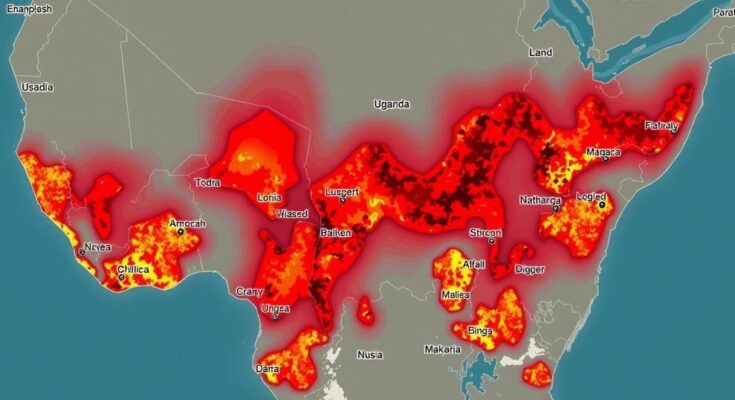Dinga Dinga is a disease affecting Uganda’s Bundibugyo district, causing debilitating body tremors and walking difficulties. Approximately 300 cases have been recorded, but there have been no fatalities reported. Health officials emphasize the treatability of the disease with antibiotics and advocate for early medical intervention.
Dinga Dinga is a disease currently affecting the Bundibugyo district in Uganda, characterized by uncontrollable body shaking and severe difficulties in walking. Reports indicate that this condition can render mobility nearly impossible for those afflicted, as their bodies tremble significantly. Presently, around 300 cases have been documented, yet health officials have reported no fatalities. They affirm that Dinga Dinga is treatable with antibiotics and express confidence in a high recovery rate, with many patients recuperating within a week of receiving proper medical care.
Dr. Kiyita Christopher, the District Health Officer, has communicated effectively with the local population, urging individuals to seek treatment promptly at local health facilities. Furthermore, health campaigns in the area emphasize the importance of early medical intervention and the recognition of symptoms such as fever and bodily tremors. Residents are discouraged from relying on unverified treatment options, as ongoing education about Dinga Dinga is critical to controlling its spread.
Dinga Dinga has emerged as a significant health concern within Uganda, notably in the Bundibugyo district. The alarming rise in cases has drawn the attention of health officials, who are working diligently to educate the community on its symptoms and encourage appropriate medical responses. As of now, the exact cause of the disease remains unidentified, underlining the need for continued investigation and public health vigilance.
In summary, Dinga Dinga presents a serious health threat in Bundibugyo, Uganda, with a notable number of cases documented. Despite the lack of fatalities, the condition’s symptoms severely impact mobility, necessitating urgent medical treatment. The assurance from health officials regarding its treatability is promising, and community education is vital to prevent further transmission. Residents are urged to act quickly to seek medical care and avoid unproven treatments, thereby fostering a health-focused environment.
Original Source: m.economictimes.com




